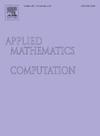环境信息感知通过q学习增强随机公共物品博弈中的合作
IF 3.5
2区 数学
Q1 MATHEMATICS, APPLIED
引用次数: 0
摘要
合作是社会进步的基础,但理性的个体往往以个人利益为重,不利于互利合作。公共物品博弈(Public Goods Game, PGG)是研究群体互动的经典模型。传统的PGG假设一个静态的环境,但在现实中,环境是动态变化的,个体行为与环境之间存在着相互作用。因此,本文提出并应用随机博弈框架来研究行为与环境之间的反馈机制。本文以两态环境转移机制为例,探讨随机PGG中环境信息感知能力对个体决策的影响。具体来说,我们使用Q-learning算法来描述个体的决策行为,并考虑两种具有不同感知能力的个体:具有环境感知能力的个体根据当前环境状态选择最佳行动,而没有环境感知能力的个体仅根据历史经验做出决策。实验结果表明,环境信息感知显著降低了随机PGG的合作阈值。通过对个体微观互动模式的分析,我们发现不同策略群体之间存在隔离带效应,有效地防止了背叛行为的侵蚀,保证了合作的内部稳定性。扩展实验进一步验证了结果的鲁棒性。研究表明,环境信息有利于促进合作的进化。这些发现为研究随机PGG中的合作机制提供了新的见解,并为促进现实社会中的合作提供了有价值的指导。本文章由计算机程序翻译,如有差异,请以英文原文为准。
Environmental information perception enhances cooperation in stochastic public goods games via Q-learning
Cooperation is the foundation of social progress, but due to rational individuals often prioritize personal interests, reciprocal cooperation is undermined. The Public Goods Game (PGG) is a classic model for studying group interactions. Traditional PGG assumes a static environment, but in reality, the environment is dynamically changing, and there is an interaction between individual behavior and the environment. Therefore, the stochastic game framework is proposed and applied to study the feedback mechanisms between behavior and the environment. This paper takes the two-state environmental transition mechanism as an example to explore the impact of environmental information perception ability on individual decision-making in the stochastic PGG. Specifically, we use the Q-learning algorithm to depict individual decision-making behavior and consider two types of individuals with different perception abilities: individuals with environmental perception ability select the best action based on the current environmental state, while individuals without environmental perception ability make decisions based solely on historical experience. The experimental results show that environmental information perception significantly lowers the cooperation threshold in the stochastic PGG. By analyzing the microscopic interaction modes of individuals, we find that there is an isolation zone effect between different strategy populations, which effectively prevents the erosion of defection behaviors and ensures the internal stability of cooperation. The extended experiments further validate the robustness of the results. This study shows that environmental information is beneficial for promoting the evolution of cooperation. These findings provide new insights into the cooperation mechanisms in stochastic PGG and offer valuable guidance for promoting cooperation in real-world societies.
求助全文
通过发布文献求助,成功后即可免费获取论文全文。
去求助
来源期刊
CiteScore
7.90
自引率
10.00%
发文量
755
审稿时长
36 days
期刊介绍:
Applied Mathematics and Computation addresses work at the interface between applied mathematics, numerical computation, and applications of systems – oriented ideas to the physical, biological, social, and behavioral sciences, and emphasizes papers of a computational nature focusing on new algorithms, their analysis and numerical results.
In addition to presenting research papers, Applied Mathematics and Computation publishes review articles and single–topics issues.

 求助内容:
求助内容: 应助结果提醒方式:
应助结果提醒方式:


